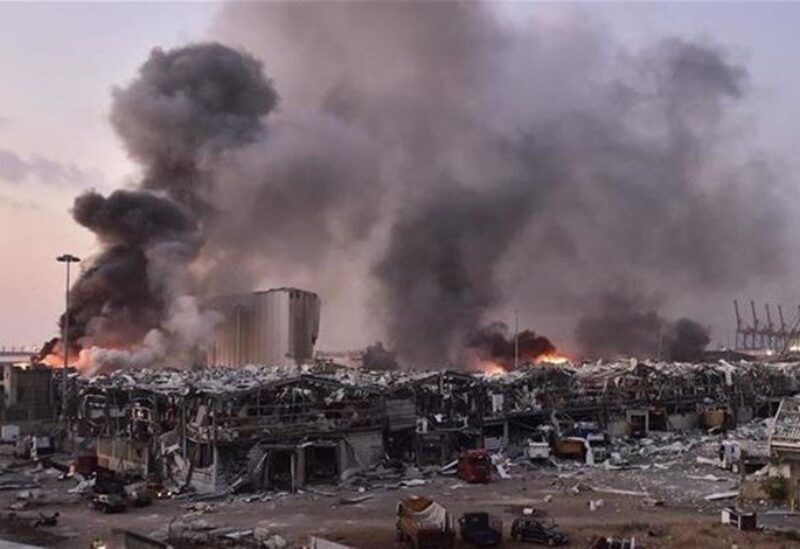
Damages of Beirut Port Blast
Three years have elapsed since the Beirut port explosion, which stood as one of the most significant non-nuclear blasts globally. Yet, the truth remains elusive, with no accountability established for those responsible for this calamity. This catastrophe resulted in the loss of 220 lives, injuries to over 6,500 individuals, and substantial damage to both private and public property that endured from the aftermath of the explosion.
Simultaneously, the families of the victims continue to mourn their loved ones, while the survivors’ wounds remain unhealed due to the absence of the truth that could offer solace.
Turning to the progress in the legal proceedings, lawyer Youssef Lahoud, representing the Bar and Victims Syndicate in the Judicial Council case, spoke with “Sawt Beirut International.” He conveyed, “It’s apparent that obstacles persist in impeding the investigation’s progress, stemming from elements within the political authority. Nevertheless, it’s definite that the investigation is in an advanced stage, contingent on overcoming these barriers. Maintaining the status quo would tarnish Lebanon’s reputation, especially since the case has been marred by obstruction, and the Lebanese state has struggled to bring the inquiry to a just conclusion. The global community perceives this explosion as a crime of monumental proportions. Hence, it’s imperative for all judicial, legislative, and executive bodies to exert their utmost efforts, each within their jurisdiction, to facilitate the investigative process. Failing to do so could detrimentally impact public order.”
While Lahoud held the Lebanese state accountable, he also attributed a fundamental responsibility to the international community. He pointed out their failure to provide satellite imagery to the Lebanese judiciary, which could shed light on the truth. The same obligation extends to the entities that transported “nitrates” to the Beirut port and those behind the operation. He stressed that nations possessing relevant information should cooperate fully with the investigation.
Lahoud emphasized the extensive capabilities of foreign countries that could substantially aid the inquiry. These capabilities are particularly critical for uncovering elements that Lebanon lacks the technological resources to discern. Given the multitude of hypotheses surrounding whether the explosion resulted from an external attack or another cause, he implored anyone possessing relevant information to share it with the authorities. He raised concerns about whether the lack of cooperation with Lebanon was deliberate.
Lahoud commended Judge Tariq Al-Bitar, the judicial investigator for the port explosion, for fulfilling his role diligently. Nonetheless, he noted a problem with foreign nations withholding evidence that could be pivotal in establishing accountability.
Addressing the ruling by the British Supreme Court of Justice concerning the port explosion, wherein a decision was reached against the English company SAVARO LTD, Lahoud deemed it a positive and significant step. He attributed this outcome to the prosecution office’s persistent efforts.
In response to a query, Lahoud identified several countries with laws permitting the pursuit of cases unrelated to their direct involvement. He questioned why international pressure hadn’t been applied to such nations regarding their roles in the explosion. He cited examples like Mozambique and the Portuguese national who directed the involved company. Likewise, he mentioned Georgia, the producer of the “nitrates,” and its potential insights into the shipment’s destination. Lahoud also urged pressure on those responsible for the Rhosus cargo ship and the nation under whose flag it sailed—Moldova. He pondered whether the ship was indeed destined for Mozambique or Lebanon.
Concluding his statement, Lahoud questioned the absence of United Nations pressure to elucidate how the “nitrate” shipment gained entry into Lebanon. He noted the precedents of the United Nations Coast Guard inspecting cargo on ships entering Lebanese waters. He raised concerns about how a shipment of 2750 tons of “nitrates” was permitted entry without international oversight or investigation. He highlighted a past incident where a similar shipment was halted and redirected by the United Nations Navy, underscoring the need for international cooperation in discovering the truth.